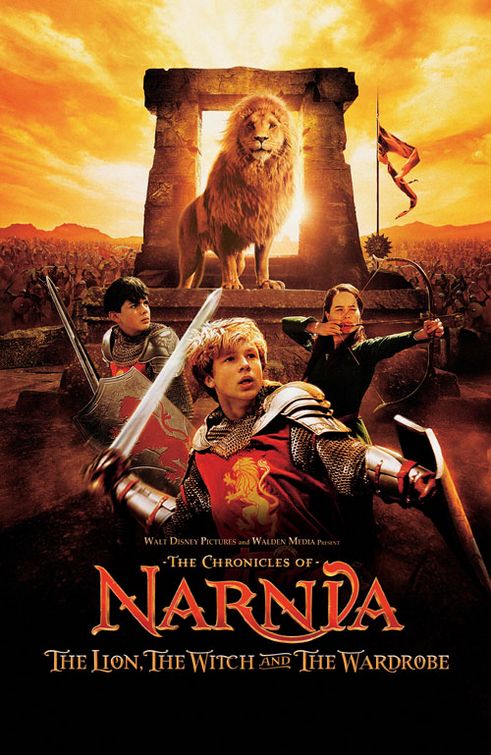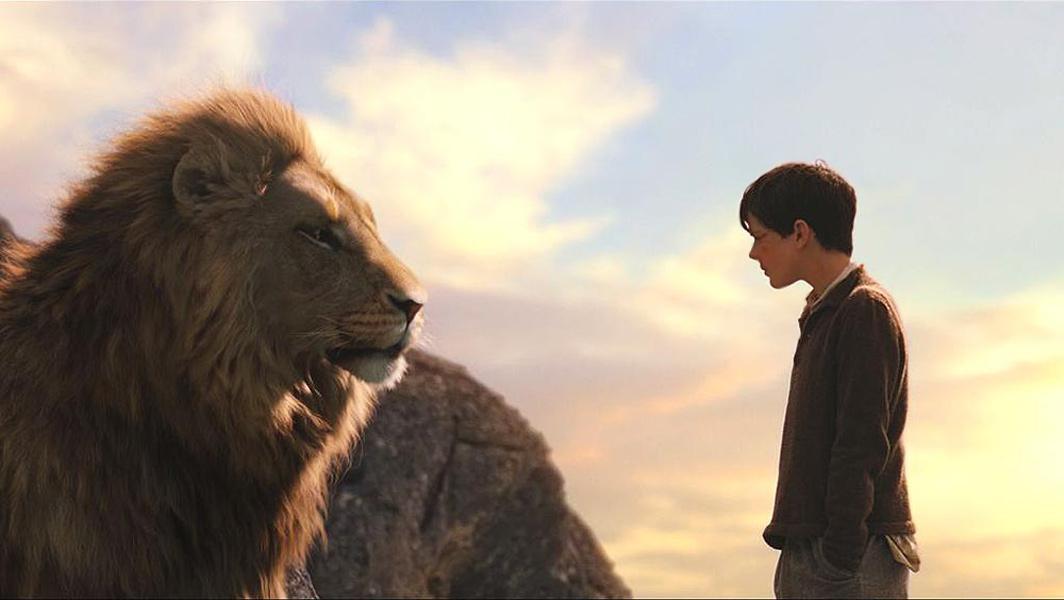Defining Moments
Edmund's defining moment as a hero takes place in The Battle of Good vs. Evil. Fighting as member of Aslan's Army of Good Creatures, Edmund, proves himself to be a hero. Facing improbable odds, the Army of Good prevails due to Edmund's courageous, selfless sacrifice. In the midst of the losing battle, Edward courageously charges White Witch disarming her of her magical wand and ultimately shifting the momentum of the battle. His brother Peter High King of Narnia acknowledges this courageous act of selflessness:"It was all Edmund's doing, Aslan," Peter was saying. "We'd have been beaten if it hadn't been for him. The Witch was turning our troops into stone right and left. But nothing would stop him. He fought his way through three ogres to where she was just turning one of your leopards into a statue." p.179
Which is best seen in the following clip .
Peter's acknowledgement of Edmund as a hero is the ultimate defining moment of Edmonds role as the hero figure. Looking back at Edmunds actions in beginning of the story and the climax of the battle it is evident that Edmunds character matured and transformed from child to child hero. At the beginning of the novel, Edmund had come off as a snotty, selfish and egocentric child who was power greedy. Yet by the end of the novel Edmund is crowned as, The Just King of Narnia, for his display of courage, strength and nobility. It was the series of challenges and growing pains that Edmund faced in the context of the novel which transformed him into a hero and The Just King of Narnia.


Comparatively, Michael's adventures and discoveries lead him down a different path than Edmund. Instead of discovering himself intrinsically, Michael undergoes an external transformation that is easily attributed to environment changes. Struggling with the stress and emotional toll of his premature sister's birth, and rehabilitating a mysterious dying angel, Michael has to display mental and physical strength. The confusion and emotional tension that Michael struggles with are best captured in his narration: "I wanted to stand up and say, "There's a man in our garage [Skellig] and my sister is ill and it's the first day I've traveled from the new house to the old school." But I didn't. (p.13)".This moment of fear, panic, and loneliness best described how difficult Michael finds coping with school and family is. Although, the quote might suggest fearfulness in his tone the reality is that Michael is beginning to realize how abnormal the recent events in his life have been. Mina, a neighborhood girl who befriends Michael helps him cope with the stress and supports him through the tough times. The role of Mina in relation to Michael is one of support and enabler at the same time-much like the hero +side phenomenon. A within book comparison of the book between Mina and Michael, suggest that as Michael is growing and transforms, he in part adopts the better characteristic of Mina- who teaches him a new and liberal way of thinking of transcendentalism and anti-materialism.
The novel Skellig has many defining moments where Michael and Mina are portrayed as hero duo , but the best and most important defining scene takes place at the end of the story, when:"Skellig leaned forward and hugged us both. He licked a drop of red sauce from his lips."Thank you for 27 and 53," he said, "Thank you giving me my life again. Now you have to go home." (p.168)".The gesture above is the only moment where Skellig acknowledges how valuable Michael's actions were in his surviving. In previous moments, Skellig had thanked Mina and Michael simultaneously not wanting to minimize Mina's importance. The focus of the apology is the thanking for 23 and 57, which has a deeper meaning for Micheal than Mina. The 23 and 57 was a reference to the Chinese Restaurant Order Number over which Michael befriended Skelling in their first meeting. In the grand scheme of the novel, if it were not for Michael's rescue of Skellig his sister Joy would have died. Skellig, as the Angel of Death, spared the life of Joy because of Michael's noble act of kindness towards him. After analyzing and reviewing Michael's actions, character, and intentions, it t becomes evident that the kid is special. Michael transformation and maturity is evident in the relationship and interaction with Skellig.


In the end, reviewing Edmund and Michael's adventures it becomes apparent that each character had undergo a series of transformation to become the hero they were. Which brings us back to the original question " Are heroes born or made ?" . I would argue : Heroes are not born but instead molded, shaped, and formed, by their experiences as we have seen with our two character Michael from Skelling and Edward from The Lion, The Witch and The Wardrobe.